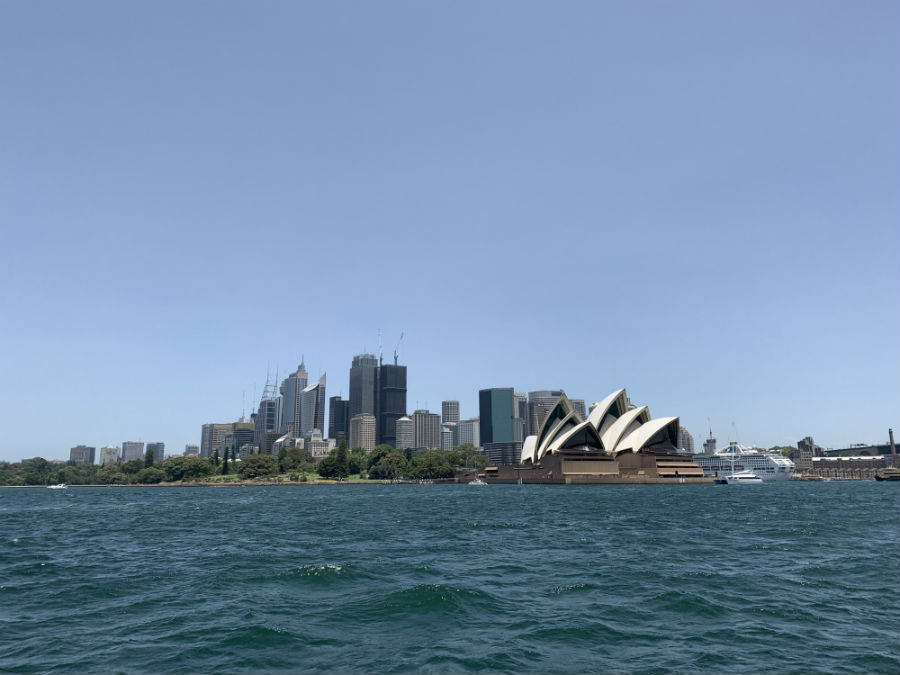
Hello everyone, my name is Igor, and for a couple of years now I have been living in Sydney and working as an engineer in one of the local companies. Today I will tell you how in just a couple of years I was able to go from the beginning of my career to relocation to the other side of the world. Go!
How it all started
Even in my second year at the University in Yaroslavl, I thought about building a career in IT. At first, of course, I started looking for freelance jobs, but in general, the idea that living and working abroad is very cool, I had from the very beginning. It is clear that for this it was necessary to reach a certain level. It was not important for me where to go, I just wanted it to be an English-speaking country - to improve my language.
After graduating from university, I moved to Moscow and started working as an iOS developer. In the end, I worked in two companies, but already in the process I started sending my resume to various foreign companies - I used LinkedIn for this. Of course, no one gave me any offers right away, but this way I managed at least to practice and understand the process, to overcome the fear of speaking English a little.
Then I was looking for vacancies on different sites, and now I subscribed to the g-mate bot (@ g_jobbot ) - it collects vacancies on my profile and sends them directly to Telegram. Including the positions that I need in Australia.

When I had about two years of development experience, an HR manager from my current company wrote to me and offered to go for an interview. As it turned out, in the course of one of the mailing lists after graduation, I already wrote them myself, stayed in the database, and then contacted me.
The interesting thing here is that the interview process was completely different from what I was used to in Moscow. In Russia, interviewers mostly searched for knowledge of how everything works under the hood, asked to solve a bunch of algorithmic problems (something like an interview in FAANG). Here, everyone was interested in how you can write code together with another developer, how much you fit the culture of the company. Not really counting on anything, in the end I went through all the stages of the interview and received an offer.
It was a little surreal - firstly, I didn't plan to go so abruptly somewhere, and secondly, so far. But in the end I didn't think too much, the new experience should have become very interesting. As a result, it turned out that about two years passed from the start of the first activity by the developer to the offer in the Australian company.
What to prepare for when relocating
The very process of moving for foreigners in the company is well established - there are special people who help with paperwork, transportation of things, arrangement on site. Only a few things were needed from me:
- Confirm work experience with the help of recommendations - to obtain a work visa, it just needs to be at least two years.
- Pass the IELTS language exam and get a certificate . The minimum is to score 5 points in each of the Listening, Reading, Writing and Speaking sections. To be honest, I didn’t prepare much, I didn’t expect it myself, but I passed just for the passing grade.
- Pass a medical examination - you need to confirm that there are no special and contagious diseases.
- Provide a police clearance certificate - it is clear that the Australians want to let into the country, first of all, people who have not been noticed in anything criminal.
- Get medical insurance . It can be done online, but I had to get confused myself. Then you will have to pay for the insurance monthly, and in Australia, medicine is expensive - $ 70 / month is the cheapest and practically useless policy.
I sent a package of papers, and then everything happened without my participation. After sending the final prepared package of documents, I received a work visa for a period of four years in about a week.
In a new place: rent, weather and jetlag
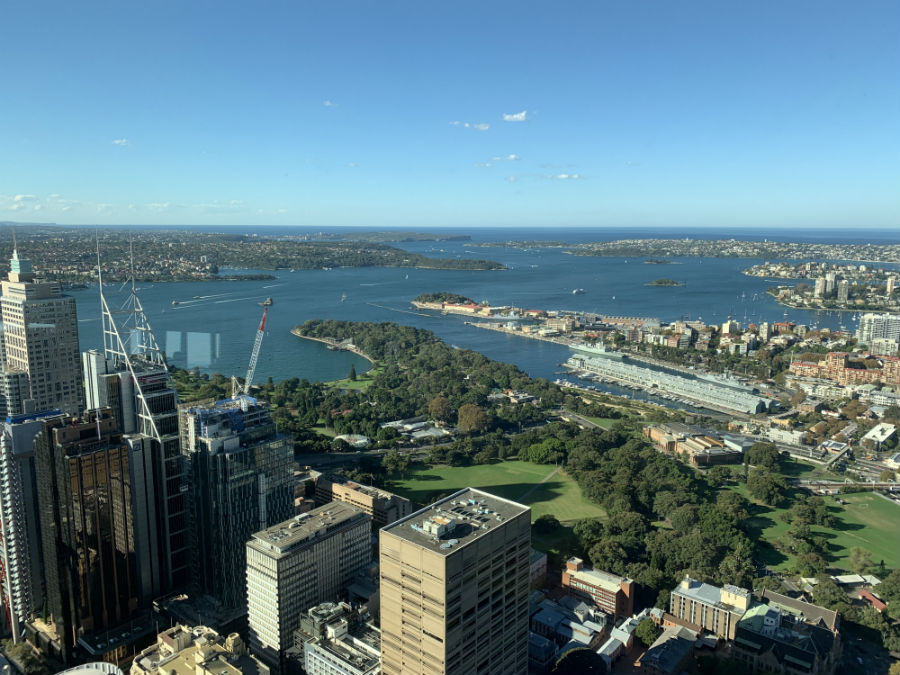
Upon arrival, you have two options: rent an apartment on Airbnb or rent a hotel. The apartment is cheaper, so I booked myself an apartment near work from Moscow. I was entitled to a certain relocation bonus - from it I just compensated these costs.
Renting a permanent apartment is not so easy. First, you need a realtor. It is he who will help book an inspection of the apartment (inspection), which needs to be picked up on one of the local notice boards ( one , second- the announcements are often repeated, but it is better to study both). Secondly, if you like the apartment based on the results of viewing, then you will need to fill out a rather large form in which you indicate everything in the world, including salary, work experience, etc. Thirdly, it would be ideal to provide a review from the previous landlord - here I prepared and, back in Moscow, asked the guy from whom I rented an apartment to write in broken English how good everything was, all payments came on time, etc.
All these movements are needed in order to score as many points as possible following the completion of the questionnaire. If there are not at least 100 points, then the application will not even be considered. Then they often do a background check - they check various offenses against the databases. If the landlord likes everything, then you need to conclude a contract. It can be for 6 and 12 months - a year is preferable.
After that, the first thing that needs to be done is to make a bond (deposit), which is usually equal to 4 weeks of rent + pay 1-2 weeks of the rent itself. Apartments are generally rented unfurnished, you have to buy everything yourself. The deposit is returned after the expiration of the contract. If any damage or problem is found at the final inspection, the cost of the repair will be deducted from the deposit.
Real estate in Sydney is expensive, currently I rent a one-bedroom apartment for 500 local dollars per week (~ $ 360 US dollars). Among my colleagues at work, those who rent "odnushki" pay approximately the same way, the number of rooms and the area affect. In my case, it turned out to be about 30 minutes walk to the office, but I rode a bike, but that was all before the pandemic - now we all work remotely.
I flew from Russia in November - the weather was already so-so. Accordingly, I was dressed warmly. In Sydney, our end of autumn corresponds to the end of spring, and summer starts in December. As a result, the wild heat, which really surprised me on leaving the airport. I really wasn't aware of such a difference in the seasons at all, in the end I almost died from the heat while trudging from the airport, it was good at night.
Also before that I was once in California - everything seemed very similar visually. One-story houses, fences, traffic lights and pedestrian crossings - the atmosphere reminded the United States.
Well, one of the main first impressions is a powerful jet lag. After the flight, I planned to relax for a day and go for a walk around the city, but in the end the first days I could only sleep, I went to the Vodafone salon at most once to buy a local SIM-card - a contract for 12 months, fixed $ 60 / month. It would be completely sad without the Internet.
How the workflow is different
Onboarding in the company is quite thoughtful. Firstly, there is no such thing that you come, and you are the only newcomer. There are special days in the middle of the week when a group of recruits arrives at once. They are shown the office, draw up the last pieces of paper. My first truly working day was only the fourth after my first visit to the office - very handy, given that the effects of jet lag were still felt.
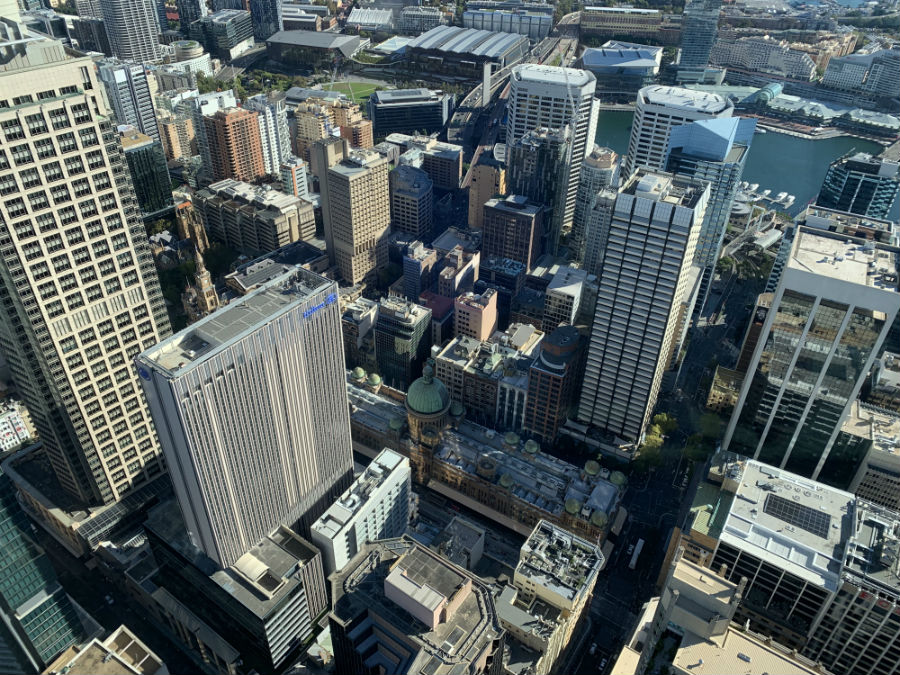
In the first two weeks, we got to know our colleagues in groups, listened to various presentations, attended trainings, set up computers for us, etc. An important part of onboarding is meeting mentors from other employees. They help beginners get comfortable in the first six months. The mentor issues tasks, introduces you to the team, evaluates your progress and gives feedback.
Everything is very friendly, the atmosphere is quite informal, even the mentor is not officially your boss. Our company generally has a flat hierarchy without supervisor-subordinate verticals. This all works very well to create a cool environment.
Of course, I was still a little nervous at first - the probationary period here is six months, if you do not pass it, you will have to leave the country. True, on a visa there is a period of 60 days to find a new employer, but I did not want to get into such a stressful situation on the other side of the Earth. But in the end everything was fine.
As for the main impressions from the approach to work, locals value the so-called work / life balance very much. Let's start with the fact that here even the official working week does not last 40 hours, as elsewhere, but 38 (this is the law). It would seem that there are only two hours of difference, but in fact they are noticeable.
Everyone works well here, but the recycling culture is not that strong. There is no approach that this is an important part of work ethics. In Russia, in those companies where I worked, all this was present. And in Australia, no. We sat until 17:00, got up and went. At 17:30 on the street in the office area there is already a queue for bars and cafes, people are actively communicating and walking.
Of course, if it is necessary for business - for example, something suddenly broke, then of course no one will refuse to tackle the problem. But then they will be paid for this time. We even have special engineers in our company who have higher salaries because their role implies a special level of availability - that is, they can wake up at night if necessary (this is called on-call).
Where can you work, salaries and taxes
If we abstract a little from my experience and talk about IT in Australia in general, there is a lot of work here. The country has offices of Facebook, Google, Amazon, Microsoft. Do not forget about Atlassian, which also actively hires foreigners, as well as actively developing local startups. Most of the vacancies are concentrated in Sydney, but you can also find something in neighboring Melbourne, although the choice there is not so great. In other cities, the chances of finding something interesting are further reduced.
Australian IT salaries are not as high as in the US. The standard salary for a software engineer is somewhere between $ 100-110k. Senior developers get more.
When discussing salaries, it is important to have an idea of taxes, and they are progressive and quite high here. There is a good sitewhich can calculate net income after deductions.
In addition to taxes, you must also pay a pension contribution (superannuation), which is ~ 9.5% of income. If in vacancies about "super" nothing is written, then you need to clarify whether the company will pay for it. If not, this percentage will be deducted from the salary.
the cost of living
Australia is significantly more expensive than Russia, and more expensive in Sydney than in Moscow. Yes, there are products whose prices are comparable - for example, milk, some kind of fruit, but usually the prices for everything here are higher. I don't cook and buy either ready-made food or something that can be put into the microwave and not steamed. It comes out somewhere between $ 100- $ 150 per week.
The two largest local supermarket chains are Woolworths and Coles. They usually have everything you need, and prices are about the same (Coles is sometimes more expensive). It is also worth mentioning Aldi - the third largest and cheapest. I usually go to Woolworths for food - normal prices, good food quality, these shops are everywhere. If you are too lazy to walk yourself, then you can order online delivery, or buy on the Internet and pick it up at the nearest store when everything you ordered is brought there.
The second option I use is Amazon. They don't sell potatoes there, but packages with products like pasta, rice, cookies, cola and all that stuff can be ordered without any problems. And if you have Prime, then most will be delivered for free. If you order Uber Eats, then for one order it costs about $ 20- $ 30 for one - just like in a cafe. In a restaurant, a standard check is about $ 40, but, of course, it depends on the institution and what exactly you order.
For coffee lovers, a large mug will cost 4.50. And the coffee here is very tasty, it's not for nothing that they are proud of it here, and Starbucks is not particularly popular.
Conclusion: leisure and general impressions
I spend more time in the city - there are a bunch of interesting places, the Sydney Opera, public spaces.
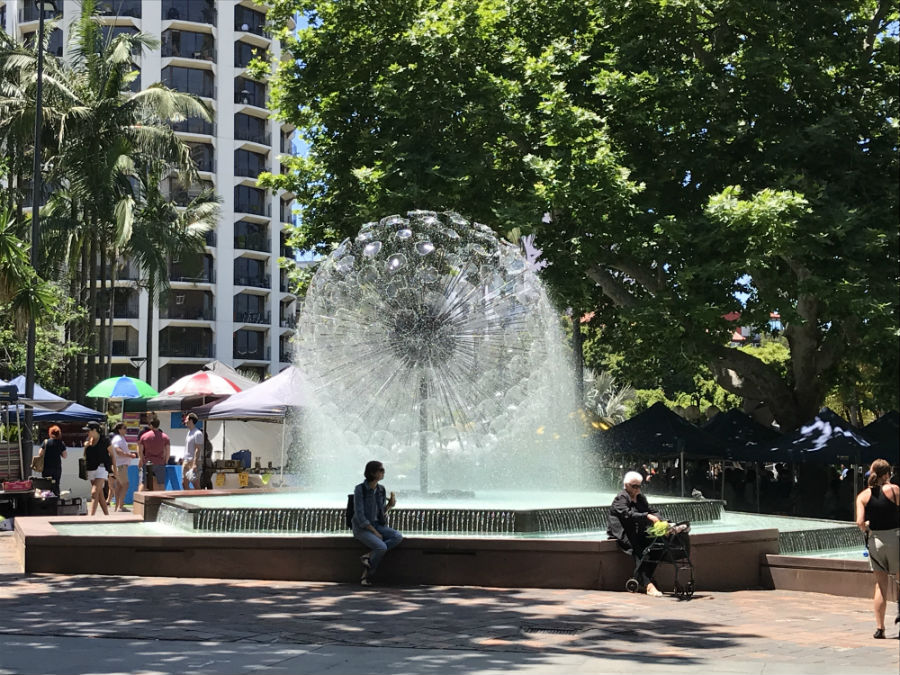
There are a lot of beaches, surfing, diving - everything is at a high level. There are usually a lot of people everywhere.

In general, there is excellent nature, many national parks. If you have a car, getting to such attractions is not a problem.
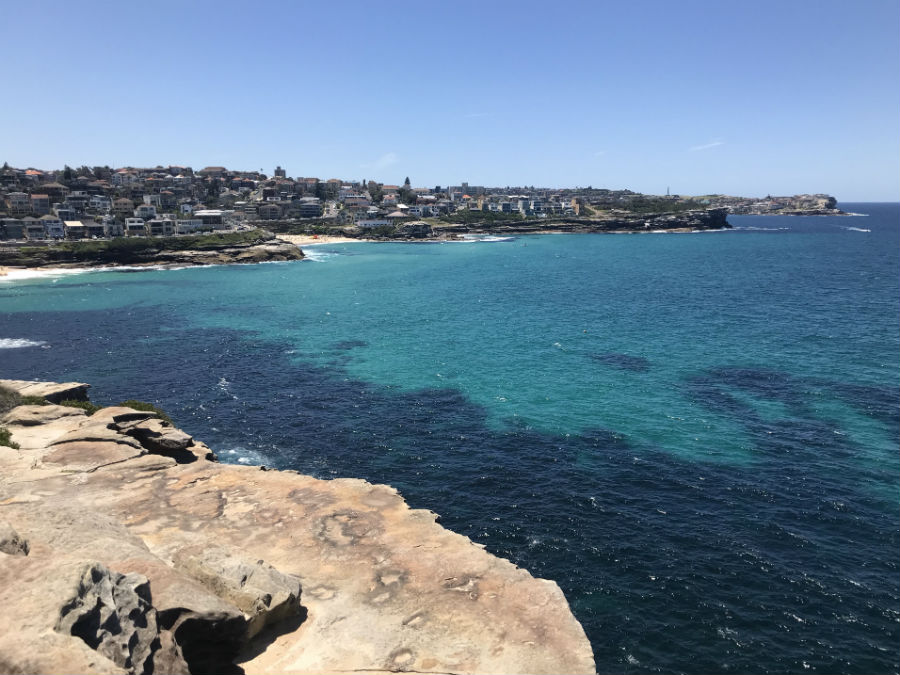
If you compare my two years in Sydney with my two years in Moscow, then I like it more here. The standard of living is very high, you feel safe even when you walk around the city at night, the job is interesting, but there is life beyond it. There are a lot of opportunities for sports, people are friendly and positive. In general, everything is cool, and I definitely do not regret moving!
g-mate (@g_jobbot) Telegram. – .